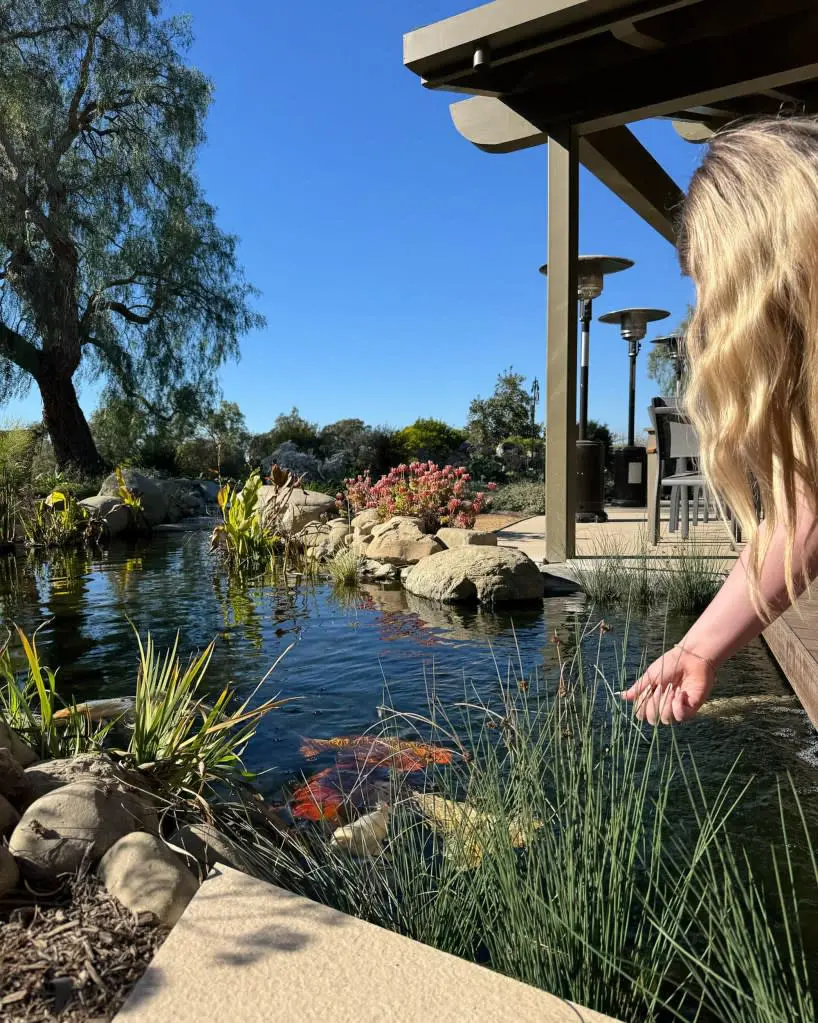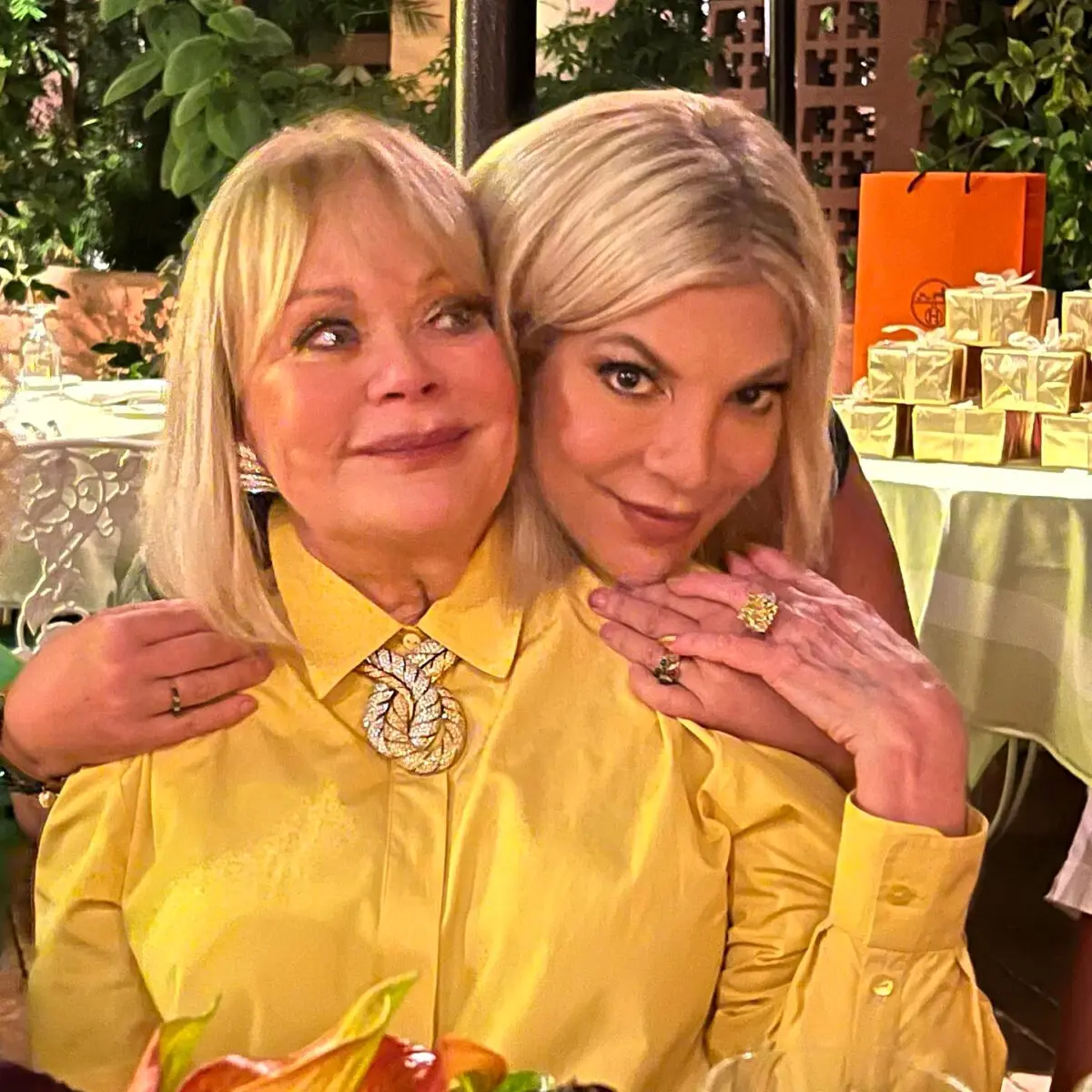In a heart-stopping episode of her podcast, Tori Spelling lays bare the harrowing experience of fleeing her home in Los Angeles amidst devastating wildfires. With only 30 minutes to gather her five children and multiple pets, Spelling recounts how she navigated this chaotic situation filled with emotional turbulence and uncertainty. The evacuation—a frantic attempt for safety—casts a stark light on what truly matters when faced with the prospect of losing everything.
Tori Spelling, known for her role on ‘Beverly Hills, 90210’, has always shared glimpses into her life, but this podcast episode reveals an intimate look at family dynamics under pressure. With wildfires rippling through Los Angeles, Spelling had to muster her wits and make split-second decisions that would ultimately determine what was saved and what was left behind. This significant moment not only highlights the reality of natural disasters but also showcases the values of family support and resilience.
The 30-Minute Countdown
As the flames drew closer, Tori Spelling’s life turned into a race against time. With just half an hour to evacuate, she found herself in a surreal whirlwind filled with frantic scrambling and emotional questions about what to save. It’s moments like these that put into perspective what holds true significance in our lives, particularly when it comes to personal belongings versus family safety.
While her daughter, Stella, stepped up as a ‘co-parent’, assisting her siblings in gathering their belongings, Spelling had a moment of paralysis—literally freezing in her closet. The weight of being a self-professed hoarder suddenly bore down on her, as she realized that every item could potentially be lost in the flames. In her podcast, Tori humorously reflected on this hesitation, saying, “I don’t know what to take.” It epitomizes that moment of clarity where value is reassessed under duress.
What Would You Save?
The tough choices began when Spelling assessed her immediate needs. In the chaos, she clung to her LA DIY tee and an old jacket from elementary school—these were more than just clothes; they were memories. In addition to clothing, she grabbed a few sentimental items: a seashell, crystals believed to channel good energy, and her contact lenses. Each choice was laden with meaning, navigating the fine line between sentimentality and practicality.

Hoarding and Sentimentality
In discussing her self-identified tendency to hoard, Tori opened up in a way that resonated with many. So often, we define ourselves through our belongings, and when faced with the possibility of loss, it can be a severe emotional awakening. Why do we cling to possessions? Is it nostalgia, sentiment, or the identity we build around our belongings?
Tori’s nostalgic attachment to her childhood jacket signifies deeper connections to her past. It raises a broader question: how much of our identity is intertwined with what we own? Spelling demonstrated that during dire times, family bonds and shared experiences weigh more heavily than designer shoes or luxury bags. In a moment of crisis, personal relationships and memories trump brand names every time.
The Family Dynamic Under Pressure
Throughout the chaos of evacuation, family dynamics play a crucial role in how events unfold. As Tori reflected on her experience, she mentioned how the pressure brought out different responses in each of her children. Her desire for them to choose what they valued most showcased her inherent maternal instincts, aiming to support their emotional needs amidst the chaos. It was a fine balance between collecting essentials and assuring her kids felt supported.
The atmosphere in the packed car, described almost like ‘Tetris on steroids’, was a telling depiction of family life in that moment. Two of her kids wrestling with their giant knotted blankets painted a picture of the perfectly imperfect family moment full of laughter and squabbles. Spelling highlighted how the packed vehicle became not just a means of escape but a capsule of family interaction under stress.
Arguments and Cooperation
Within the confines of the jam-packed vehicle, tensions ran high as space was limited and emotions were fraught. Spelling recalled how the children began bickering, reflecting natural sibling rivalry that bubbles to the surface when under pressure. Yet, despite the squabbles, there was an underlying current of cooperation as well. The family was united in a common goal: survival.
Tori emphasized that each child dealt with the situation differently, which she respected and acknowledged. This adaptability speaks to the resilience of family units in crisis; each member finds their footing to navigate through trying times. Spelling’s perspective on letting her children prioritize their belongings illustrates her understanding of each child’s emotional needs, as she encouraged them to save what mattered to them most.

Moment of Clarity
There comes a moment during significant life events where clarity strikes—what is indispensable in one’s life? Sitting amidst the tensions of evacuating through fire, Tori realized that material possessions are indeed just ‘stuff’. The emotional journey distilled her understanding of what really holds value; love for her children and their safety far outweighed any material items left behind. Her acknowledgment that personal belongings are secondary to her family’s well-being encapsulates a profound understanding of priorities.
Moreover, the reflection on her choice not to grab designer shoes illustrates this transformative moment—how many times do we find ourselves clinging to superficial aspects of life, only to discover their insignificance when faced with adversity? This realization contributes to a collective understanding for many that emergencies highlight the importance of relationships over possessions.
Aftermath and Reflection
Once the family reached safety at an Airbnb after driving through the actual fire, Tori remained unaware of the impending tragedy to her mother’s home. Despite managing her own crisis, the larger reality of the wildfires loomed over her. The effects of natural disasters extend beyond personal experiences; they ripple through communities, touching lives in profound ways. Tori learned about her mother’s Malibu mansion burning down later, which added another layer of emotional weight to an already heavy situation.
The resilience exhibited not just by Spelling’s family, but also by others affected by wildfires, creates a community tapestry woven together by shared challenges. The aftermath is not simply recovery but rebuilding, and for Spelling and her family, it’s emerged as an opportunity to reflect on what matters most amidst chaos.
The Greater Community
The wildfires in Los Angeles have not only devastated individual lives but have also sparked broader conversations surrounding community support. Tori’s experience aligns with that of many, including celebrities like Dennis Quaid and Lil Kim, who also faced evacuations. Their stories unite them—a growing chorus of those impacted—demonstrating the collective strength in sharing experiences of hardship. This community ties mutual support with resilience, emphasizing that though individuals may face their struggles alone, they are also part of a larger fabric of those fighting to recover.

Looking Ahead
The aftermath of wildfires leaves survivors reflecting on future preparedness. What lessons will be learned from these experiences? Tori’s story can serve as a template for other families. For instance, it’s essential to develop an emergency plan—knowing what to grab in case of evacuation and having those family discussions ahead of time can ensure smoother operations during emergencies.
Life teaches valuable lessons through hard experiences, urging individuals to develop adaptive skills to navigate crises. Tori Spelling’s experience is more than a narrative of panic; it’s a symbol of resilience and adaptability, encapsulating the idea that regardless of external circumstances, family and emotional connections endure, highlighting the stark truth that safety and togetherness transcend material loss.
Hi, I’m Sarah, a 30-year-old journalist with a passion for storytelling and uncovering the truth. I strive to bring important issues to light and connect with my audience through compelling narratives.



